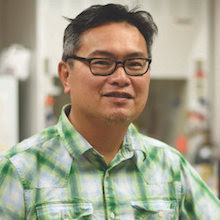Announcing 5th International Symposium on the Ocean in a High-CO2 World
The SOLAS-IMBER Working Group on Ocean Acidification (SIOA) is pleased to announce that the 5th International Symposium on the Ocean in a High-CO2 World will be held in Lima, Peru on 7-10 September 2020. The lead organizers are Drs. Wilmer Carbajal (Pedro Ruiz Gallo National University, Peru) and Michelle Graco (Institute of the





